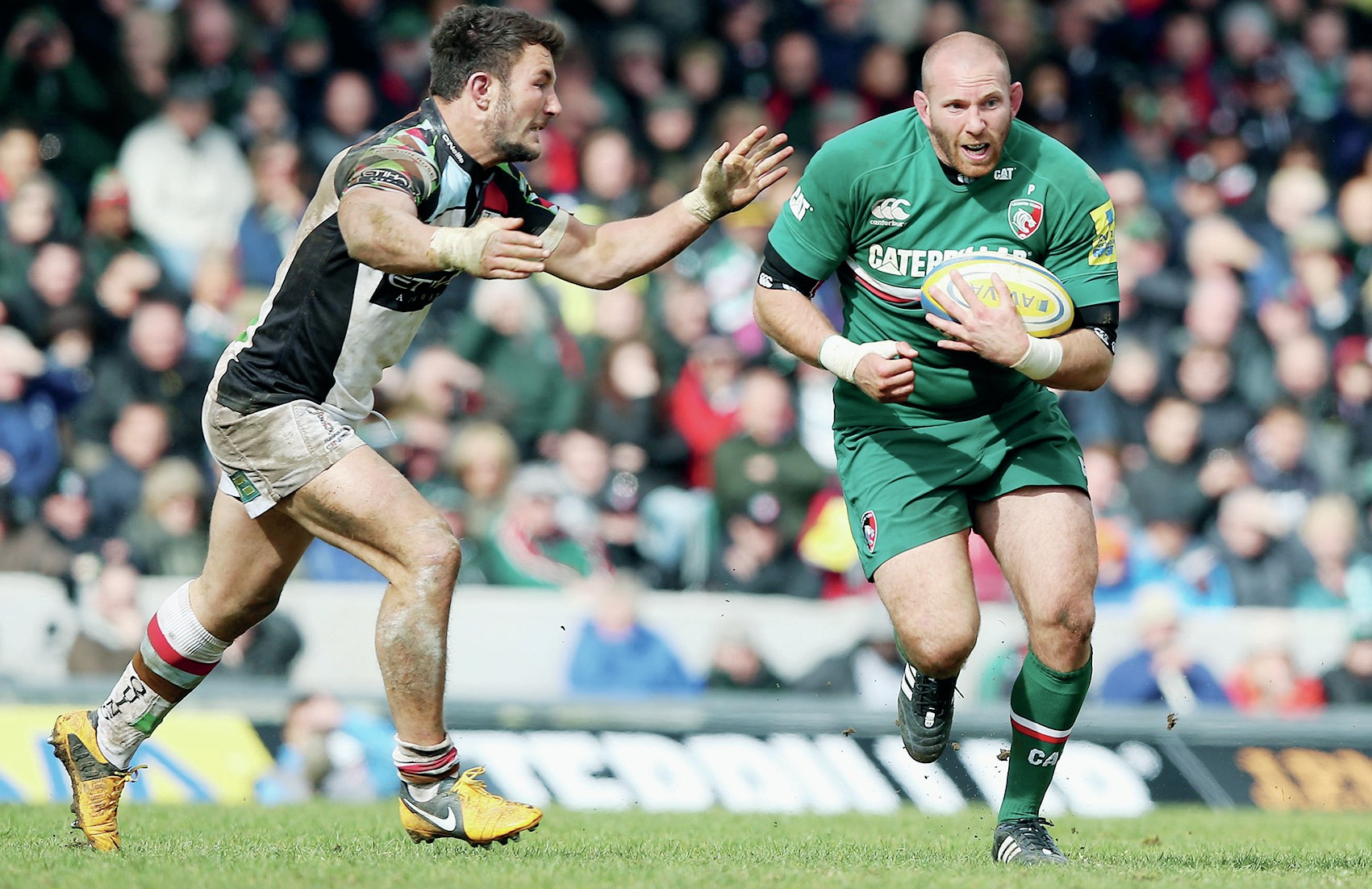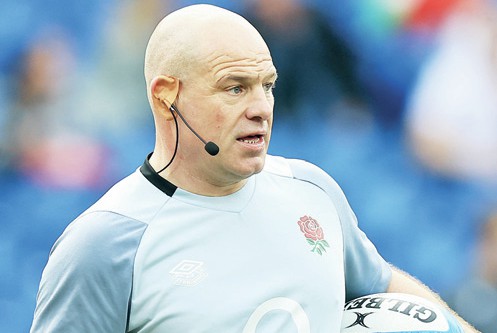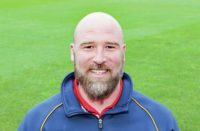MY LIFE IN RUGBY – ROB HAWKINS
THE FORMER BATH, LEICESTER, NEWCASTLE AND BRISTOL HOOKER
Coming from Somerset, Bath were my boyhood club so to join them was literally the stuff of dreams. I actually pulled a sickie from school (Millfield) to be there in Bordeaux when the club won the Heineken Cup in 1998. And I would have got away with it had my teacher not been watching the game back home on TV and spotted me jumping up and down in the crowd like a mad man.
When I arrived at The Rec as an academy player there were plenty of mentors to learn from as a hooker with the likes of Mark Regan, Lee Mears and Jon Humphreys all in the squad. I tried my hardest to keep my head down and not get embroiled in Ronnie's fun and games or be on the receiving end of his banter. But I couldn't escape the age-old initiation ceremony which came after my first team debut away to L'Aquila in the Parker Pen Cup in 2001. Iain Balshaw and Mike Tindall had me downing pints of red and white wine.
Not a good mix!
I never kind of felt like I properly broke through at Bath because of the stiff competition for places and that was the main reason behind me eventually leaving. It was frustrating because all I wanted to do was play for the club and show the supporters what I could do.
My best season was probably 2008/09 when I played in about half of the Premiership games and scored two in one game against Gloucester. We reached the play-offs and got to a European semi-final as well.
We had a brilliant group of people and, it may sound stupid to say given what happened with the drugs stuff, but we had a brilliant culture. It felt like we were really on the brink of something but the squad split up in the fall-out.
Mark Bakewell was our forwards coach at the time and I have nothing but good things to say about him, and I think all the other players he coached would say the same.

He's a brilliant fella. I was lucky enough to be coached by him again when I had a final spell at Bristol.
Life has taught me to never say never but, early on in my career, Leicester was the one club, as a Bath supporter, that I said I would never join. I used to hate them with a passion, but going there turned out to be the best decision I ever made. Those four years at Tigers were the most enjoyable of my career.
I wasn't looking to move from Bath but I went back to being on the fringes of the first-team squad once Pieter Dixon arrived.
When Leicester approached me, the more I thought about it, it was a no-brainer to take them up on their offer. At that time they were consistently challenging for honours and it was the right time, the right place.
Once I'd made my decision I was desperate to see what Leicester's magic formula for success was. I was just blown away by the simplicity of it.
When I was at Bath, we tried to reinvent the wheel and try weird and wonderful tactics but at Leicester it was just about working harder than everyone else. It was so refreshing. Going to Leicester taught me a lot about the tighter side of the game, and my set-piece developed as a result.
In terms of clarity of message, I had a lot of time for Cockers (Richard Cockerill, below) and Matt O'Connor at Leicester. Cockers was straight up, straight down. You knew exactly where you were with him. I remember he wasn't best pleased when I got sent off for the one and only time in my career, ironically against Bath, in an LV Cup game.

It hadn't been that long since I'd left Bath and Danny Grewcock, bless his cotton socks, did his best to wind me up. Stupidly, I fell for it and got a yellow card after only two minutes. For my second yellow, my emotions were running high and I got done for a no-arms tackle. I actually think the referee had forgotten he'd already given me a yellow but Duncan Bell was very quick to remind him and I was sent off. It wasn't my finest hour and afterwards Cockers let me know in no uncertain terms what he thought about it.
One of the main reasons I defied my boyhood allegiances and went to Tigers was to win silverware. But I started to think it was never going to happen after we lost to Sarries in a super-tight Premiership final at the end of my first season, and then again to Quins in my second, when I was injured. So it was especially nice to finally get over the line and win one against Saints in 2013.
My time at Tigers ended sooner than I'd have liked but that's the way professional rugby goes. When Newcastle came in for me, we had three young children at the time. We toyed with the idea of going to France but it felt like too big a step to make with such a young family. I'm a country bumpkin and didn't know much about the North East but we went up there and loved it as a family.
Unfortunately, the rugby side of things wasn't so great. I enjoyed playing under Deano, he's the last of the old-school generation, but I just didn't play enough so I started to think about my options outside of rugby and did some shifts as a Special Police Officer whilst I was there.
Moving to Bristol effectively saved me after I didn't get the role that I applied for in the police. I didn't have any contingency plans and was struggling to know where the money was going to come from to pay for the extension we were having built. It was a bit of a dark time.
But the nine months I had at Bristol gave me the time I needed to sort myself out with an alternative plan. I dread to think what would have happened if I hadn't have got a contract with them. Even though we were relegated, I enjoyed playing there with a great bunch of lads and finished my rugby career in a much better place than if it had come to an end at Newcastle where I'd kind of fallen out of love with the game.
Since retiring from rugby, I've been in a sales and clinical support role for a medical devices company. You get pressure throws as a hooker in rugby but I have never been as nervous as my first few times in theatre when you have got highly intellectual people asking you questions about spinal implants and you know if you get the answer wrong there are huge implications for the person on the operating table. It's then that you remember rugby is a sport at the end of the day; the result on a weekend is not a matter of life or death.
– as told to Jon Newcombe



























